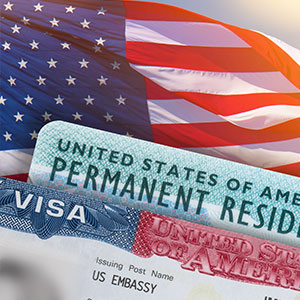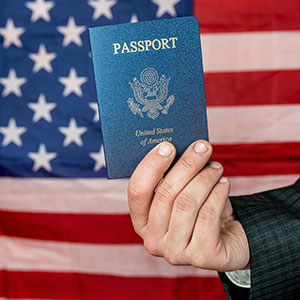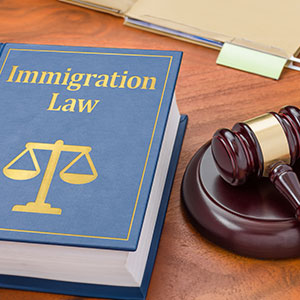
For foreign nationals with extraordinary abilities, there are a number of different visas that can be used to work in the United States. Choosing the right one can be a complicated matter. Some people might plan to change from an O-1 visa to an EB-1 green card, and it is important to know the differences. What’s An EB-1 Green Card? An EB-1 green card is for individuals who demonstrate expertise or recognized talent in their specialized field. This includes individuals such as scientists, doctors, researchers, business executives, educators, and other professionals with renowned talent. In order to be eligible for an EB-1, the applicant must have three years of relevant work experience in their field. Once an EB-1 green card is granted, the individual will have permanent residency in the United States. What’s An O-1 Visa? An O-1 visa is also reserved for individuals with extraordinary ability in their field. Individuals with an O-1 visa are initially allowed to stay for three years but have…Read More

In the spring of 2019, the U.S. State Department announced a new policy that would require all visa applicants to submit information about their social media presence. This includes foreign nationals who are applying for immigrant or nonimmigrant visas. Social Media Information Visa applicants must now provide information about every social media platform they have used in the five (5) years prior to their application. They must include the name of the platform and the username or handle that they used on the platform. Applicants are not required to turn over their passwords. Applicants must also provide their email and phone number in addition to any email addresses or phone numbers they have used in the past five years. This social media account information will give consular officials access to an individual’s pictures, locations, personal life events, and other personal information. This move is a step up from the broad surveillance that was enacted by the Homeland Security Department in 2017. In addition, in the past, the…Read More

President Trump announced in October of 2019 that visas will now be denied to immigrants who cannot prove that they have health insurance or the ability to pay for medical costs. This comes as the latest move by the administration to put further restrictions on legal immigration. Proof Of Healthcare Coverage The administration will now require consular officers to bar immigrants seeking to live in the United States unless they can show proof that they “will be covered by approved health insurance” or that they have “the financial resources to pay for reasonably foreseeable medical costs.” It is unclear what constitutes “approved health insurance,” and the parameters of what is considered adequate financial resources have yet to be established. The proclamation has been in the works for several months and is aimed primarily at immigrants seeking to join their families in the United States. President Trump justified the proclamation by relying on a study by the Kaiser Family Foundation that found that legal immigrants are three times more likely…Read More

If your company is looking to bring someone with extraordinary ability to the United States to work, you should consider the O-1 visa as an option. The O-1 visa is designed to allow those at the top of their field in areas like the arts, sciences, sports, education, and business to work in the United States. The O-1 visa has some distinct advantages over other types of work visas. Processing Time Approval for O-1 visas generally takes less time than other types of work visas. You should still plan for about three to four months. If you decide to pay for premium processing, this processing time can be cut down to as little as 15 days. No Annual Quota The second major advantage of O-1 visas is that there is no annual quota. HB-1 visas have a cap of 65,000 issues each year, with an additional 20,000 in the master’s exemption. The O-1 visa has no annual quota and is available to anyone who qualifies.…Read More

An L-1 visa is a visa used to enter the United States to work. It is available to employees of an international company with offices in the U.S. and abroad. L-1 visas are reserved for executives and managers and for workers with specialized knowledge. Applying For An L-1 Visa When applying for an L-1 visa, documentation must be submitted to validate the existence of a foreign company and its relationship with the U.S. company. There must also be documentation establishing that the worker is an executive or manager or a worker with specialized knowledge. L-1 Visa Denial An L-1 visa application can be denied for a number of reasons. The most common reason for a denial is that there was a problem with the provided documentation, or the overall situation of the applicant in the home country did not warrant approval. No matter the reason for the denial, once you have been denied, you can continue to apply multiple times for an L-1 visa. This…Read More

Individuals seeking visas to enter the United States must undergo an extensive application and review process. It includes submitting paperwork and undergoing an interview with a consular officer who will make the determination regarding your visa. Throughout this process, your visa can be denied for a number of different reasons. Some common reasons why your visa may be denied include: Ineligible For Visa Preference Applying for the wrong type of visa is one of the most common reasons a visa is denied. This usually happens when an individual applies for a nonimmigrant visa that contains certain restrictions. Correcting this ground of ineligibility can usually be done with the submission of additional paperwork or applying for a different type of visa. Not Enough Information Sometimes your visa may be denied because you did not supply enough information to support your application. This generally results in the consulate stating they will not move forward with your application unless you provide the requested information. If you did not…Read More

Astounding numbers of people experience abuse — both emotional and physical — every day. Abuse can make anyone feel trapped and afraid, but this is especially true for immigrants who are living in the United States illegally. Many immigrants who find themselves in abusive situations feel that they cannot seek help because any authorities they might turn to would realize they don’t have legal status, and they could be deported, often to a country where they expect to endure further abuse, made even worse by conditions of poverty. Since 1994, the Violence Against Women Act (VAWA) has provided funds and support to initiatives with the aim of putting an end to domestic violence. It has come to protect all people in the United States, not just women, from any type of abuse. In 2013, an update to VAWA was added, providing specific protection to immigrants who experience domestic violence. If you have experienced domestic violence in the past or are still experiencing it, you can…Read More

There are hundreds of immigration law firms throughout Florida, so how do you know you’re choosing the right one? Serving Immigrants, Inc. rises above the crowd and provides you with the focused and experienced representation you need. Experience At Serving Immigrants, Inc., we’ve been working for over a decade to help immigrants with a variety of issues. We have extensive familiarity with the immigration process and have helped hundreds of clients reach their immigration goals. Knowledge of the process is the key to success when it comes to immigration issues, and we deal with the process every day. Our experience can make the process as seamless and painless as possible. Personal Touch Personalized attention and focus are important to effective representation. At Serving Immigrants, Inc., we work very closely with our clients and provide them with the attention they deserve. Helping our clients reach their goals is our number one priority, and we work together with our clients to meet these needs. Some law firms…Read More

O nonimmigrant visas are available for individuals who have demonstrated extraordinary abilities and would like to perform those abilities in the United States. O-1 visas allow an individual to stay in the United States for three years, and there are unlimited extensions available. There are several different categories of O visas, and it’s important to know the difference. O-1A Visas O1-A visas are reserved for individuals with extraordinary abilities in the sciences, education, business, or athletics. These individuals must demonstrate their extraordinary abilities by showing sustained national or international acclaim for their accomplishments. It indicates a level of expertise that shows an individual is one of a small percentage in their field. Individuals with an O1-A visa are coming to the United States on a temporary basis to work in the area of their extraordinary ability. O-1B Visas O-1B visas are available for individuals with extraordinary abilities in the arts or extraordinary achievement in the motion picture or television industry. To demonstrate extraordinary abilities in…Read More

Navigating the immigration system can be a complicated matter and, while you are not required to have a lawyer, you may not want to go through the process alone. There is extensive paperwork that goes along with the immigration process, and the task can be daunting. Having an immigration lawyer on your side can help you in a number of important ways. An Immigration Lawyer Can Avoid Mistakes An important part of acquiring a visa, finalizing your marriage to an immigrant, and other immigration procedures is filling out the paperwork correctly. The paperwork involved in the immigration process is complicated and extensive. You are often tasked with filling out gathering important documentation. Without the help of an expert, it can be easy to make a mistake. One small mistake in your paperwork can derail the whole process, so you want to make sure it’s done right the first time. An experienced immigration lawyer can ensure that your paperwork is correctly completed and prevent you from…Read More